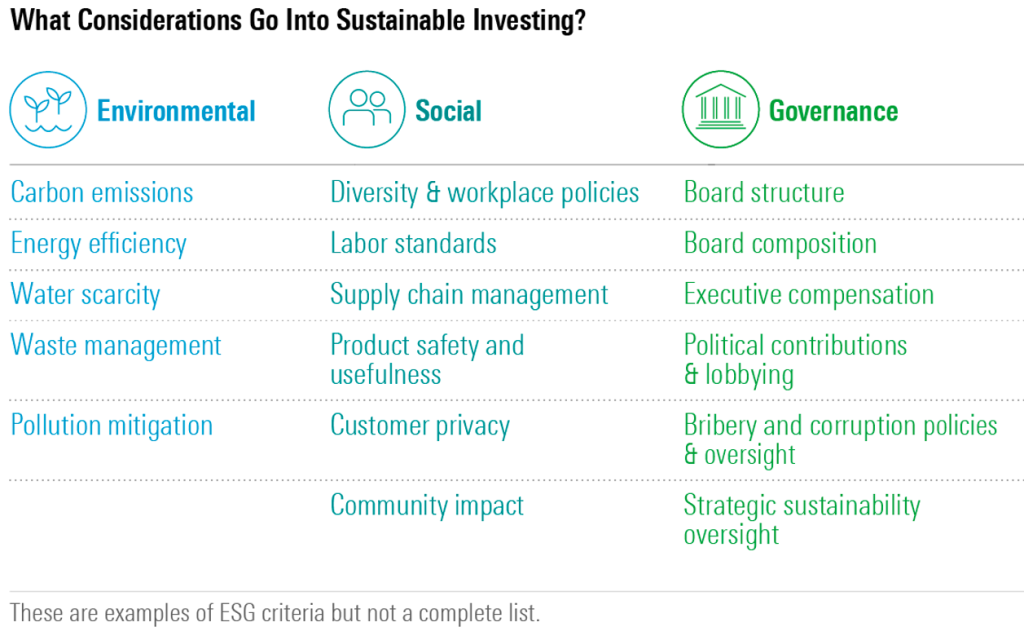OVERVIEW
The ESG (Environmental, Social, and Governance) investment landscape in Vietnam is a tapestry interwoven with opportunities and challenges, reflecting the country’s quest for sustainable progress. As investors increasingly recognize the significance of aligning financial returns with positive environmental and social outcomes, Vietnam emerges as a fascinating arena for analysis.
Vietnam, with its rapid economic growth and vibrant culture, finds itself at a pivotal juncture. The pursuit of development has brought forth concerns about environmental degradation, social inequalities, and corporate governance. ESG investing offers a compelling framework to address these concerns, enticing investors with the potential for long-term value creation while fostering positive change.
The ESG investment landscape in Vietnam is generally on a positive path. This article provides an overview of ESG in Vietnam, highlighting the country’s progress, challenges, and potential for ESG investment and business.

Source: Morningstar3
WHY DO COMPANIES/INVESTORS CARE ABOUT ESG CRITERIA?
In Vietnam, companies and investors have shown a growing interest in incorporating Environmental, Social, and Governance (ESG) criteria into their operations. More than 85% of Vietnam’s 500 fastest-growing companies (FAST 500) have committed or plan to comply with environmental, social, and governance (ESG) standards, according to a survey conducted by the Vietnam Report Company (Vietnam Report).
The survey by PWC shows that 82% of respondents across industries choose brand image and reputation as the top reason to pursue ESG while staying competitive is the second cited reason (68%). Others include employee retention and talent attraction and, last but not least, the increasing pressures from investors, shareholders, and the government.
The reasons behind this focus on ESG can be attributed to several factors, including updated data and evolving business trends within the country:
- Social pressure: The increased social pressure on businesses comes from their accountability and obligations to society. Such pressure comes from a wide range of investors, employees, customers, and the community. A failure to address ESG concerns could lead to serious reputational harm.
- ESG can attract new customers for additional growth: Consumers and business customers who factor ESG considerations into their buying decisions are likely to seek out products or services provided by companies that are focused on ESG.
- Legal requirements: Companies need to adequately address ESG-related regulatory concerns, to avoid exposure to legal liabilities and litigation.
- Financial gains and sustainable value: research has shown that businesses with good ESG performance can reduce costs through energy and resources efficiency, increase productivity and reduce the risk of regulatory interventions, eventually resulting in higher financial gains and sustainable value.
In 2018, Bank of America Merrill Lynch found that firms with a better ESG record than their peers produced higher three-year returns, was more likely to become high-quality stocks, were less likely to have large price declines, and were less likely to go bankrupt.
THE GROWING IMPORTANCE OF ESG INVESTMENT IN THE ASEAN REGION, VIETNAM’S PERSPECTIVE
According to Sustainalytics, they have a deeper look at the ESG disclosure and performance of major Southeast Asian countries, focusing on the ASEAN-6 countries (Singapore, Malaysia, Thailand, Vietnam, Indonesia, and the Philippines). The findings show that Vietnam and Indonesia show higher unmanaged ESG risk due to lower management scores and higher exposure to high ESG risk industries such as steel, mining, oil and gas, electric utilities, and food.

Source: Sustainalytics
However, the popularity of ESG practices has surged in Vietnam in recent years, primarily driven by the government’s efforts to promote ESG-related practices and the growing demand for sustainable investment. As one of the countries most affected by climate change, Vietnam has placed a strong emphasis on ESG issues.
Specifically, renewable energy and agriculture in Vietnam are emerging as active industries for mergers and acquisitions (M&A) due to their close alignment with environmental, social, and governance considerations. Because of an increasing focus on sustainable food production and reduction of environmental impact, ESG-linked deals are also visible in the agriculture industry.
Notable ESG initiatives in Vietnam include:
Vinamilk, a major player in the dairy industry, has made ESG a crucial factor in achieving sustainable growth. The company focuses on environmental sustainability by investing in energy-efficient technologies and renewable energy sources.
PNJ serves as a noteworthy example of a Vietnamese company that demonstrates a comprehensive approach to ESG, actively addressing environmental, social, and governance aspects. PNJ’s commitment to ESG has been recognized through several accolades and certifications, including being listed in the Top 10 of 100 Sustainable Enterprises by the Vietnam Chamber of Commerce and Industry (VCCI).
These examples highlight the proactive efforts of companies in Vietnam to integrate ESG principles into their operations and contribute to sustainable development.
ESG POLICY DEVELOPMENTS
The popularity of ESG practices has grown rapidly in Vietnam in recent years, with the primary driving force being the Government’s increasing efforts to promote ESG-related practices, and investors’ growing demand for sustainable investment.
Nationally, as one of the countries most affected by climate change, Vietnam has put it at the top of its ESG agenda and has been taking steps to create an environment that is conducive to ESG investment, such as passing laws related to environmental protection, sustainable development, and corporate social responsibility.
In compliance with Circular No. 155/2015/TT-BTC issued by the Ministry of Finance of Vietnam, public companies in Vietnam are required to produce annual reports disclosing their environmental and social impact, as well as their objectives regarding corporate sustainability. To encourage independent external assurance, the State Securities Commission of Vietnam collaborated with the International Finance Corporation of the World Bank Group to publish an Environmental and Social Disclosure Guide in 2016, based on the Global Reporting Initiative (GRI) G4 framework.
The SSC, together with the Ho Chi Minh Stock Exchange (HOSE) and the German cooperation agency GIZ, launched the Sustainable Development Index (VNSI) on HOSE in July 2017.
The Ho Chi Minh City and Hanoi stock exchanges have launched the Vietnam Sustainability Index to recognize and promote best ESG practices among publicly listed companies.
At the 26th United Nations Climate Change Conference of the Parties (COP26), Vietnam pledged to achieve a net-zero carbon emission target by 2050, stop deforestation by 2030, and phase out coal-fired power by 2040. These commitments reflect the government’s focus on sustainability and ESG principles.
These ESG policy developments in Vietnam demonstrate the government’s commitment to promoting responsible and sustainable business practices. They provide a framework for companies to integrate ESG considerations into their operations, enhance transparency and accountability, and attract sustainable investments.
VIETNAM HAS SIGNIFICANT ESG INVESTMENT POTENTIAL, BUT CHALLENGES REMAIN
Compared to other ASEAN countries, Vietnam stands out with large ESG challenges, due to higher exposure to high ESG risk industries. These include the steel industry and a rapidly expanding, and power-hungry, manufacturing sector.
Vietnam faces the challenge of transitioning in an organized manner from a country heavily reliant on coal for its energy production to one with a cleaner and more diverse energy mix. Recognizing this need for transformation, Vietnam acknowledges that it requires international experience to achieve its goals successfully. In particular, there are two crucial elements that only international investors and experts can offer: substantial investment capital and top-notch expertise. Vietnam understands that the support and assistance of the global community are essential in acquiring the necessary financial resources and knowledge to navigate this transition effectively.
Integrating ESG standards into business operations is about more than adding product features, improving productivity, increasing revenue, or redefining brand identity. The process requires companies to address more macro issues such as vision, core values, and human interests (including employees and customers).
In addition, companies face other challenges in implementing ESG, such as employees lacking the necessary knowledge and expertise on ESG, senior executives needing to improve their understanding of ESG implementation, and unclear and opaque regulatory frameworks for enforcing ESG standards, he continued.
Companies would also need open legal corridors and a more favorable environment, as well as incentives and priorities from the State to be able to overcome these barriers.
To prepare for increasingly ESG-oriented investing, companies and investors could incorporate it into the overall strategy to create economic value, improve their valuations, and satisfy the requirements. Besides, companies could get support from leadership, create an ESG committee, develop measurable metrics, and track these metrics. Further steps include tying the compensation of senior management to related metrics, and reporting ESG targets and progress to all stakeholders via annual reports, internal corporate communications, and annual sustainability reports.
ESG OUTLOOK IN VIETNAM
Looking ahead to 2023, Vietnam’s business landscape is anticipated to experience high levels of competition and rapid market changes. In response, companies, especially those in the FAST500 category, recognize the importance of having a clear and effective business vision and strategy that can greatly influence their development and success.
While challenges remain, the overall trend of ESG investment in Vietnam is positive, fueled by government support, rising investor awareness, improved ESG data and reporting, focus on renewable energy and sustainable agriculture, and the integration of ESG considerations by financial institutions. As Vietnam continues to embrace sustainable practices and address environmental and social challenges, ESG investing is expected to play an increasingly significant role in the country’s economy.
If you need any further consultancy, please kindly email us at hello@innolab.asia.
REFERENCE
Wiktionary. Retrieved May 25, 2023, from https://hanoitimes.vn/esg-initiative-2023-program-supports-vietnamese-households-towards-sustainable-model-323346.html%E2%80%99
ESG Asia Report 2022. (n.d.). YKVN. Retrieved May 25, 2023, from https://ykvn-law.com/wp-content/uploads/vietnam-chapter_esg-asia-report-2022.pdf
Mathis, S. (n.d.). What is environmental, social and governance (ESG)? TechTarget. Retrieved May 25, 2023, from https://www.techtarget.com/whatis/definition/environmental-social-and-governance-ESG
Milliken, C. (2022, June 4). Mobilising a post-pandemic evolution of ESG in Vietnam. Vietnam Investment Review. Retrieved May 25, 2023, from https://vir.com.vn/mobilising-a-post-pandemic-evolution-of-esg-in-vietnam-93979.html
Over 85% of Vietnam’s major businesses commit to ESG standards: Report. (n.d.). Vietnamnet. Retrieved May 25, 2023, from https://vietnamnet.vn/en/over-85-of-vietnam-s-major-businesses-commit-to-esg-standards-report-2125545.html
Pan, F. (2021, May 13). ESG Disclosure and Performance in Southeast Asia. Sustainalytics. Retrieved May 25, 2023, from https://www.sustainalytics.com/esg-research/resource/investors-esg-blog/esg-disclosure-and-performance-in-southeast-asia
Tran, N. A., Nguyen, H., Do, A., & Duong, A. (2022, August 16). A snapshot of ESG in Vietnam. Allens. Retrieved May 25, 2023, from https://www.allens.com.au/insights-news/insights/2022/08/a-snapshot-of-esg-in-vietnam/
Vietnam ESG Readiness Report 2022: From ambition to impact. (n.d.). PwC. Retrieved May 25, 2023, from https://www.pwc.com/vn/en/publications/2022/pwc-vietnam-esg-readiness-2022-en.pdf



